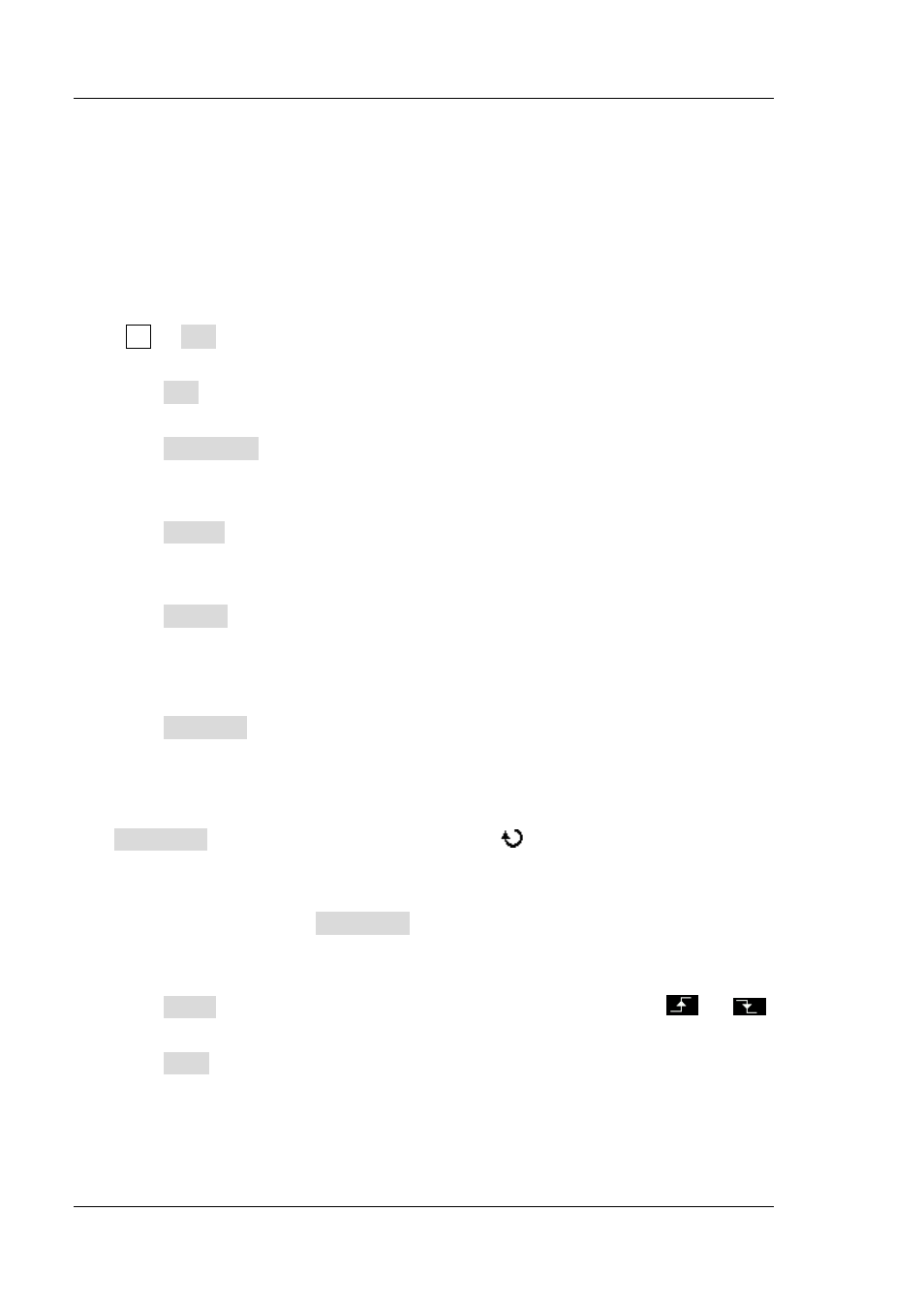To use the digital bus, To use the digital bus -6 – RIGOL MSO/DS2000A Series User Manual
Page 176

RIGOL
7-6
MSO2000A/DS2000A User’s Guide
To Use the Digital Bus
Users can display the three groups of channels (D7-D0, D15-D8 and D15-D0) as
digital buses according to their needs. Each bus value will be displayed at the bottom
of the screen in data or graph form. You can create up to 2 buses.
Press LA Bus to enter the digital bus setting menu.
Press Bus to select “BUS1” or “BUS2”.
Press BusStatus to turn on or off the digital bus.
Note:
The bus status of BUS1 and BUS2 can be set to “ON” at the same time.
Press Sel CH to set the corresponding channels of BUS1 or BUS2 to D7-D0,
D15-D8 or D15-D0.
Press Endian to set the bus endian to “Normal (D0 locates at the least
significant bit)” or “Invert (D0 locates at the most significant bit)” and the
default is “Normal”.
Press RefClock to select any channel of D0-D15 or CH1-CH2 as the reference
clock of the bus. Selecting “None” means no reference clock will be used.
When CH1 or CH2 is selected to be the reference clock, you can press the
Threshold and rotate the multifunction knob
to set the threshold of the
clock channel, the range is from (-5 * vertical scale - vertical position) to (5 *
vertical scale - vertical position). When any channel of D0-D15 is selected to be
the reference clock, the Threshold will be hidden automatically and the
threshold cannot be set.
Press Slope to set the sample edge type of the reference clock to
or
.
Press Type to set the display mode of the digital bus to “Data” or “Graph”. In
data mode, the bus data is displayed; in graph mode, the oscilloscope displays
the level of the corresponding value of the bus data for easier observation of the
variation tendency of the bus values.